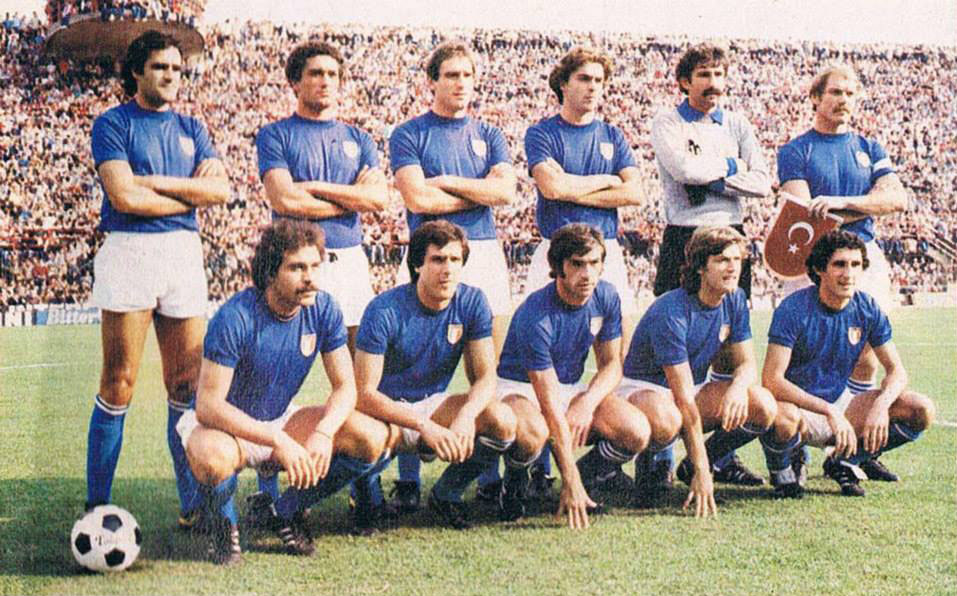1. Overview
Patrizio Sala (paˈtrittsjo ˈsaːlaItalian; born 16 June 1955) is an Italian former professional footballer who primarily played as a midfielder, and later became a manager. Sala began his career in the lower divisions with Monza, achieving early success by winning the Coppa Italia Semiprofessionisti twice. His most notable period as a player was with Torino, where he was a key member of the team that secured the Serie A title in 1976. Internationally, Sala earned 8 caps for the Italy national football team between 1976 and 1980, and was included in the squad for the 1978 FIFA World Cup, where Italy finished in fourth place.
2. Early Life and Youth Career
Patrizio Sala was born on 16 June 1955, in Bellusco, a municipality located in the Lombardy region of Italy. His early football journey began in the youth ranks, leading him to his first professional club experience with Monza.
2.1. Club Career Beginnings
Sala started his professional playing career with Monza, a club in the lower divisions of Italian football. He played for Monza from 1973 to 1975, where he quickly made an impact. During his time with the club, Sala contributed to Monza's success in the Coppa Italia Semiprofessionisti, winning the title twice consecutively in the 1973-74 and 1974-75 seasons. These early achievements marked his development as a promising midfielder before he transitioned to top-tier Italian clubs.
3. Professional Playing Career
Patrizio Sala had a distinguished career as a professional footballer, spanning several years across various Italian clubs, including notable spells in Serie A, and also representing the Italian national team at the highest level.
3.1. Club Career
After his initial period with Monza, Patrizio Sala moved to Serie A club Torino in 1975, where he enjoyed the most significant success of his club career. He played for Torino from 1975 to 1981, becoming an integral part of the squad that famously won the Serie A title in the 1975-76 season. This championship victory was a major highlight for both Sala and the club. Following his tenure at Torino, Sala continued his career in Serie A, playing for Sampdoria in the 1981-82 season. He then joined Fiorentina, where he played from 1982 to 1984. During the 1983-84 season, he also had a spell at Pisa. Sala then moved to Cesena, where he remained from 1984 to 1988. Towards the end of his top-flight career, he played for Parma from 1987 to 1989. He concluded his playing days back in the lower divisions with Solbiatese from 1989 to 1990.
3.2. International Career
Patrizio Sala's performances at the club level earned him a call-up to the Italy national football team. He made his debut in 1976 and went on to make a total of 8 appearances for his country between 1976 and 1980. His international career highlight came when he was selected as a member of the Italian squad for the 1978 FIFA World Cup in Argentina under the management of Enzo Bearzot. During the tournament, Sala featured in one match, contributing to Italy's campaign which saw them finish in fourth place overall.

4. Honours
Patrizio Sala achieved several significant team honours throughout his professional playing career.
- Monza
- Coppa Italia Semiprofessionisti (2): 1973-74, 1974-75
- Torino
- Serie A: 1975-76
5. Post-Playing Career
Following his retirement as a professional footballer in 1990, Patrizio Sala transitioned into a career as a football manager. While specific details of his managerial roles are not extensively documented in available sources, his career continued in the football world in this new capacity.
6. Legacy and Assessment
Patrizio Sala's legacy in Italian football is primarily defined by his significant contribution to Torino's Serie A title victory in 1976, which remains one of the club's most celebrated achievements. As a midfielder, he was known for his dedication and impactful play. His participation in the 1978 FIFA World Cup with the Italy national football team, where Italy reached the semi-finals and finished fourth, also marks a notable chapter in his career, highlighting his status as an international-level player during his era. His career, spanning from lower divisions to the pinnacle of Italian club football and international representation, underscores his journey as a respected figure in Italian football.